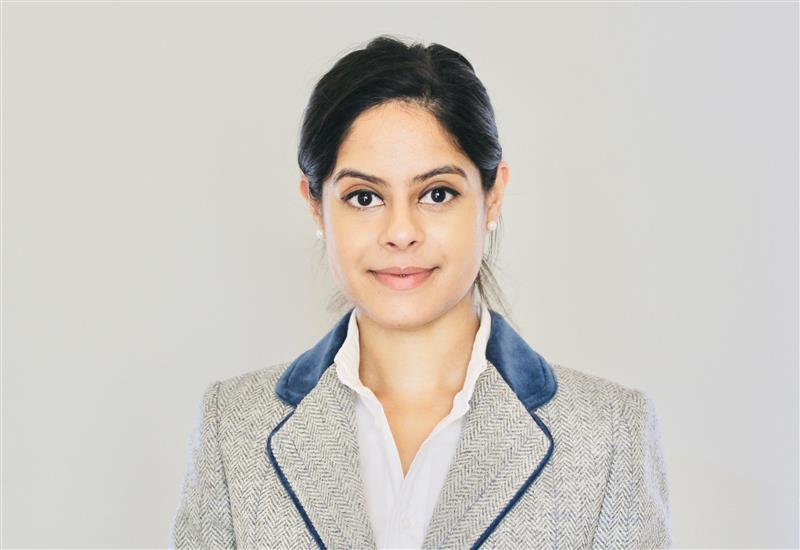
In the latest edition of our blog series imagining the future of hearing health, Crystal Rolfe, RNID Director of Strategy speaks with Dr Devina Maru, Primary Care Doctor with ENT Specialist Interest.
Devina shares ideas on existing technologies, making healthcare services easier to navigate, and future treatment options that restore hearing.
Crystal: What’s your experience of hearing care in general practice?
Devina: There are clear communication barriers between patients and healthcare professionals. The COVID-19 ways of working have now become the norm.
For example, a lot of GPs are still wearing face masks during winter flu season to prevent us getting sick. We also do a lot of telephone triaging and remote consultations.
We’re often in buildings with noisy waiting rooms and where sound echoes and reverberates. Some GP practices may not have hearing loops or other assistive listening devices, like a personal amplifier.
All these things make it difficult for a person with hearing loss to hear conversations clearly and get the support they need.
Crystal: How can technology help improve people’s experience of primary healthcare?
Devina: Technology can play a significant role in making GP visits more accessible for patients with hearing loss and other health conditions. I frequently use speech-to-text and live transcription applications during my consultations.
GPs could use AI-driven hearing tests on smartphones or tablets to conduct quick and accurate screenings, helping to identify hearing loss earlier – similar to the RNID hearing check. I incorporate the RNID hearing check into my screening process, allowing patients to assess their hearing at home or in the waiting room before seeing me in person.
Crystal: Many people say they find hearing healthcare services complicated and hard to understand. How could technology help make these services easier to use, especially for people with additional health conditions?
Devina: People turn to GPs first when accessing support for their health, seeking guidance on the specialist care they may need.
I think spreading the word about what technology already available would help. The Royal College of General Practitioners (RCGP) recently launched a hearing loss toolkit for GPs, which is already improving uptake.
I think it would also really help to have a hearing loss champion in each borough. Somebody that could champion locally and be part of a bigger network to help spread innovative ideas.
Crystal: Looking ahead, what do you think will be the most important advancements in hearing healthcare in the next 10 years?
Devina: I believe the advancements in the next 10 years will be significant, particularly in regenerative medicine and gene therapy.
Researchers have made a lot of progress in these areas, for example, in trying to regenerate damaged hair cells in the inner ear that would restore hearing. It will be amazing to have treatment options that restore hearing.
We need scientists, doctors, policy makers, and charities to work together to make this happen.
Get involved
Are you a healthcare professional excited about tech-enabled innovations in healthcare? Could your experience and expertise help accelerate improvements in hearing healthcare?
Share the innovations you have been testing in practice with our team of audiologists, audio technologists, and researchers at [email protected].